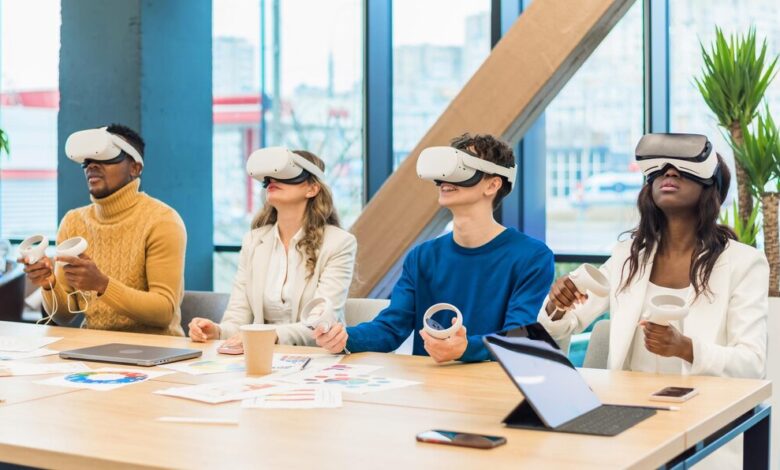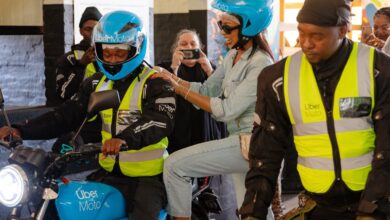10 Ways South African SMEs Can Use Virtual Reality in Training

Virtual Reality (VR) is no longer just a technology reserved for gaming and entertainment. In recent years, it has emerged as a powerful tool for businesses, particularly small and medium-sized enterprises (SMEs), to enhance their training programs. For South African SMEs, leveraging VR in training offers an innovative approach to developing skills, improving efficiency, and staying competitive in a rapidly evolving market. Here are ten ways South African SMEs can use VR in their training initiatives.
1. Safety Training
For industries where safety is paramount, such as construction, manufacturing, or mining, VR offers a safe environment for training employees on hazardous scenarios. SMEs can use VR to simulate dangerous situations, allowing workers to practice safety protocols without real-world risks. This type of immersive training can significantly reduce workplace accidents and ensure compliance with safety regulations.
2. Customer Service Training
Customer service is critical to the success of any business. VR can simulate various customer interactions, allowing employees to practice their communication and problem-solving skills in a controlled environment. By immersing staff in real-life scenarios, they can better understand customer needs and learn how to handle difficult situations effectively.
3. Product Demonstration and Familiarization
For SMEs that sell complex products, VR can be used to train employees on product features and functionalities. Instead of relying on manuals or videos, staff can interact with 3D models of products in a virtual space. This hands-on approach enhances understanding and retention, enabling employees to better assist customers and clients.
4. Remote Collaboration and Team Building
With the rise of remote work, SMEs can use VR to foster collaboration and team building among geographically dispersed teams. Virtual reality platforms can create shared virtual spaces where employees can work together, attend meetings, or engage in team-building activities. This helps to maintain a cohesive company culture and ensures that remote teams remain connected.
5. Soft Skills Development
Soft skills such as leadership, communication, and conflict resolution are crucial for employee development. VR can provide immersive scenarios that challenge employees to navigate complex interpersonal situations. For example, a VR training module could simulate a difficult conversation with a colleague or client, allowing employees to practice and refine their soft skills in a safe environment.
6. Onboarding and Orientation
Onboarding new employees can be time-consuming and resource-intensive. VR can streamline this process by providing new hires with an immersive introduction to the company, its values, and its operations. Virtual tours of the workplace, interactive modules on company policies, and simulations of daily tasks can help new employees acclimate quickly and effectively.
7. Technical Skills Training
For SMEs in technical fields, VR can be a game-changer for skills development. Whether it’s training mechanics on complex machinery, IT staff on cybersecurity protocols, or healthcare professionals on medical procedures, VR offers a realistic and interactive way to build technical skills. Employees can practice their skills repeatedly in a risk-free environment, leading to greater proficiency and confidence.
8. Sales Training
Sales teams can benefit from VR by simulating sales pitches, product demonstrations, and client interactions. This allows salespeople to practice their techniques and receive real-time feedback in a virtual environment. SMEs can create customized VR scenarios that reflect the specific challenges their sales teams face, leading to more effective training and better sales performance.
9. Compliance and Regulatory Training
Keeping up with regulatory requirements is essential for SMEs in sectors such as finance, healthcare, and manufacturing. VR can be used to create interactive training modules that ensure employees understand and adhere to regulations. By immersing employees in real-world scenarios that require compliance, SMEs can reduce the risk of non-compliance and the associated penalties.
10. Cultural Sensitivity and Diversity Training
In a diverse country like South Africa, cultural sensitivity is crucial for businesses. VR can be used to create scenarios that help employees understand different cultural perspectives, address unconscious biases, and foster inclusivity. By experiencing situations from multiple viewpoints, employees can develop greater empathy and cultural awareness, leading to a more inclusive workplace.
For South African SMEs, the adoption of VR in training programs offers a wealth of opportunities to enhance employee development and operational efficiency. From safety and technical skills training to customer service and cultural sensitivity, VR provides an immersive and interactive learning experience that can transform traditional training methods. As VR technology becomes more accessible and affordable, South African SMEs have the chance to stay ahead of the curve, leveraging this innovative tool to build a more skilled, adaptable, and competitive workforce.




